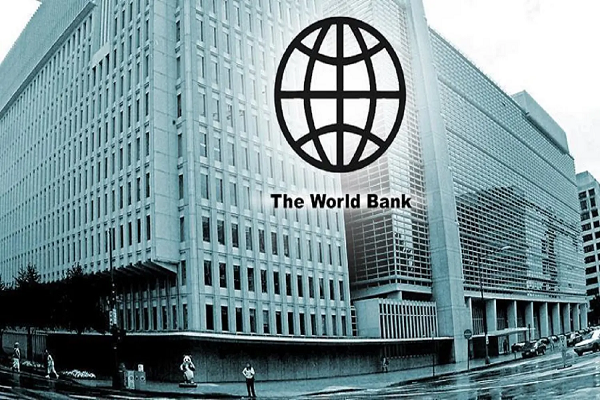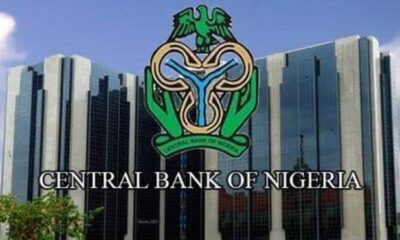Business
Nigeria, others may have to depend more on domestic finance, says World Bank

Foreign capital inflows are needed in financing developing countries infrastructure, rapid urbanisation, and escalating climate costs, World Bank Group President David Malpass said at the weekend.
He however said in these uncertain times, with widespread pressures from debt distress, countries will not be assured of foreign finance in funding such projects.
Malpass, who admitted that such such projects require huge foreign capital, made the disclosure in his Spring Meetings 2023 Positioning Speech entitled: “Growth and Stability During Crises” delivered in Niamey, Niger and hosted by the Abdou Moumouni University of Niamey at the Gandhi Conference Centre.
Foreign capital inflows into the Nigerian economy in the second quarter of 2022, increased to $1.535 billion (N632.8 billion) from the $875 million in the second quarter of 2021, according to a report by the National Bureau of Statistics (NBS).
The report said the figure represents an increase of 75.34 per cent, although when it is compared to first quarter 2022, indicates a 2.40 per cent decline from $1.573.14 billion.
NBS, in the document, said the largest amount of capital received was through portfolio investment, which accounted for 49.33 per cent ($757.32 million).
This was followed by Other Investment with 41.09 per cent ($630.87 million) and Foreign Direct Investment (FDI) which accounted for 9.58 per cent ($147.16 million) of total capital imported in second quarter of last year.
Continuing, Malpass said: “I will now turn to policies that enable private investment. Developing countries have immense investment needs, given inadequate infrastructure, rapid urbanisation, and escalating climate costs. Capital inflows from abroad will have a role to play in financing these needs. But in these uncertain times, with widespread pressures from debt distress, countries will not be assured of foreign finance.”
Malpass said the stability and efficiency of domestic financial markets should be at the forefront of policymakers’ efforts to meet domestic investment needs.
He said the COVID-19 pandemic showed that a key attribute of a successful response to crisis was a diversified investor base.
This, he said, puts a premium on an environment that allows domestic savings to flow to productive private sector firms instead of being channelled to public deficits.
“This requires a pool of savings and access to domestic financial markets through an enabling environment that includes regulations that facilitate the entry and growth of private firms; competition in domestic product and financial markets, including a level playing field with state owned enterprises and the government; transparent access to international markets; effective mechanisms to allow firms to exit when they fail; and clear policies and practices against corruption,” Malpass stated.
These steps, he added, are hard but achievable and necessary for private sector development.
He said the World Bank Group’s new approach to strengthen its delivery of private capital facilitation, if successful, aims to create an infrastructure asset class. “These efforts are key to strengthening private sectors, attracting private capital to meet climate and development costs, and boosting resources for development,” he said.
Malpass explained that the COVID-19 pandemic cost millions of lives, caused massive job losses, and disrupted supply chains. It led to the loss of more than one full year of education for one billion children around the world, which underscores the urgency of a strong recovery in education.
The pandemic, he added, also triggered extraordinary policy responses, with macroeconomic consequences still being felt. Inflation soared with governments providing massive fiscal and monetary support to counter the pandemic, especially in the advanced economies.
“Now, a growing number of developing countries are facing the prospect of major domestic crises, with economic growth slowing, poverty and hunger on the rise, public debts reaching unsustainable levels amid rising interest rates, ineffective mechanisms for resolving external debt distress, underinvestment, and growing populations,” he said.
To respond to the pandemic, countries around the world ran large budget deficits and saw significant increases in public debt.
In many developing countries, the stimulus response came on top of sharp increases in debt from projects financed by entities outside the traditional creditor countries.
“These contracts often lacked transparency. As a result, public debt has grown to unsustainable levels in much of the developing world, with precise amounts and terms often unknown due to non-disclosure clauses, collateralized debt and debt-like arrangements, and escrow accounts,” he stated.
He said more than half of the world’s poorest countries are in or at high risk of debt distress.
“Their difficulties are mounting as the world economy and asset prices adjust to more normal interest rates and bond yields. Inflation and higher interest rates in advanced economies lead to capital shortages for developing countries, causing currency depreciation and higher interest rates, thereby adding to the debt burden,” he said.












